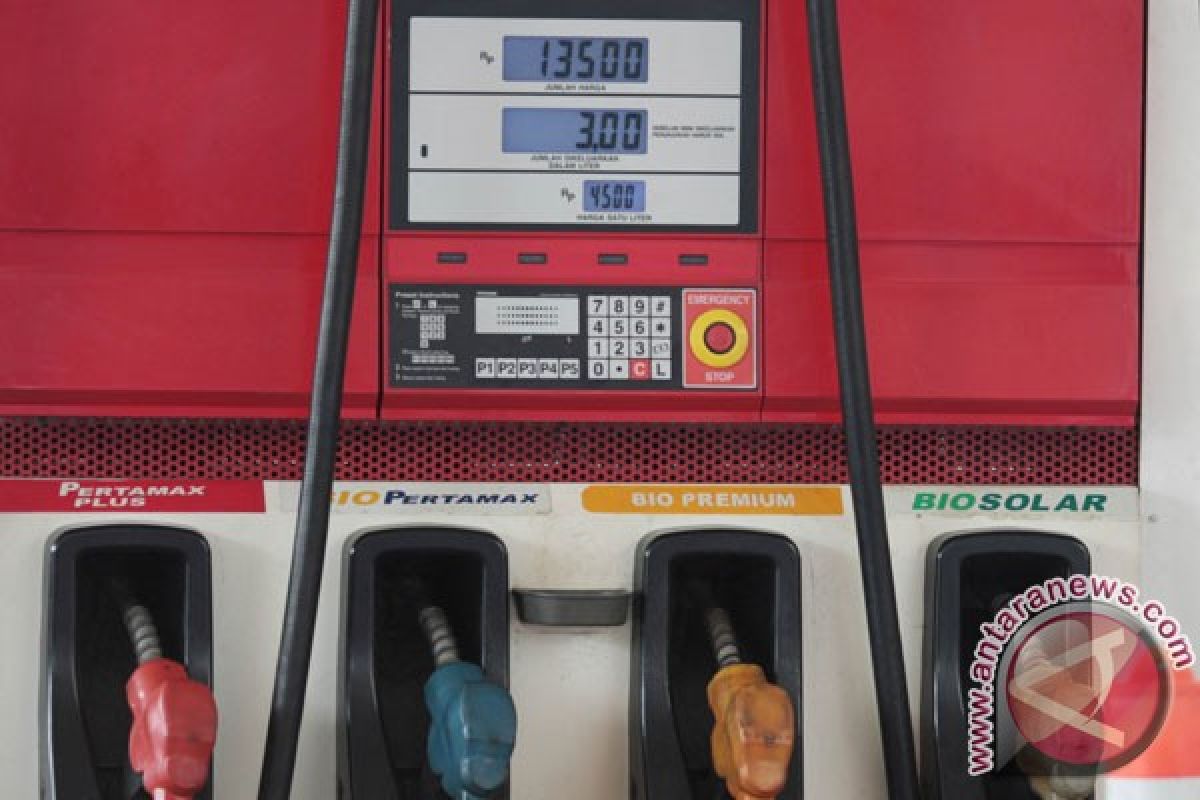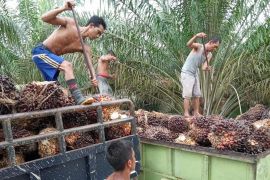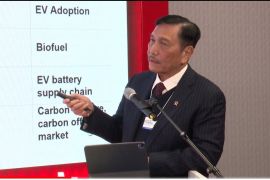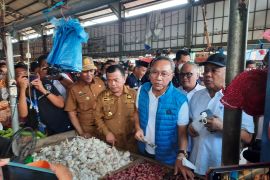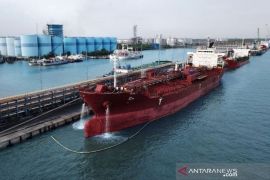The government will overcome the deficit by reducing imports, particularly fuel oils."Jakarta (ANTARA News) - One of the economic policies unveiled by the Indonesian government recently to contain the widening current account deficit is lowering oil and gas imports by raising the mandatory level of biodiesel in diesel oil.
The government announced on Friday (Aug 23) a stimuli package in an attempt to ease the widening current account deficit which is the root cause of the rupiah`s persistent weakening against the dollar.
The current account deficit hit an all time high of US$9.8 billion or 4.4 percent of the nation`s gross domestic product (GDP) in the second quarter of 2013.
High oil imports are one of the main causes of the unprecedentedly high current account deficit. Data from the Trade Ministry shows oil and gas imports in the first half of this year rose by 3.1 percent to US$ 22.1 billion due to rising demand, adding to the trade deficit which rose by more than sixfold to US$3.31 billion year-on-year.
The government has predicted that Indonesia will still record a trade deficit particularly from the oil and gas sector in the second semester of this year.
Trade Minister Gita Wirjawan has predicted that oil and gas will continuously play a role in the trade balance. If the situation remained the same as the first semester, the deficit might reach between $5 billion and $6 billion this year, he said.
Coordinating Minister for Economic Affairs Hatta Rajasa noted that the best way to overcome the country`s current account deficit is reducing oil imports.
"At this moment we need an immediate solution to the current account deficit. The government will overcome the deficit by reducing imports, particularly fuel oils," he said on Monday (Aug 26).
Indonesia currently imports an estimated 35 million kiloliters of diesel oil per year, including 17.5 million kiloliters for subsidized diesel oil.
To reduce the consumption of imported diesel oil, the government would make it mandatory for the public to use crude palm oil-based bio-fuel, Rajasa said.
"Our CPO production is currently on the rise, while on the other hand, the CPO price in the market is declining. Therefore, we must protect our palm oil entrepreneurs and farmers to continuously get their product to market," he said.
"The price of CPO-based biofuel is lower than that of imported diesel oil," he noted.
By applying the policy, he was convinced that the current account deficit would drop below 3 percent of the GDP in the third quarter.
"The deficit can be overcome in either of two ways: increasing exports or reducing imports. These are the ideal options that will produce a surplus in our trade balance," he said.
The government has been determined to tackle the root cause of the rupiah`s depreciation against the dollar by among others reducing the import of diesel fuels while at the same time raising the level of biodiesel in diesel fuel.
Deputy Minister of Energy and Mineral Resources Susilo Siswoutomo said on Friday (Aug 23) the government would make it mandatory for state oil and gas company Pertamina to increase the content of fatty acid methyl ester (FAME) in diesel fuel for the transportation sector from 2.5 percent to 10 percent.
"By raising the mandatory level of biodiesel, we will be able to lower diesel oil imports," he said.
For the first time ever, Pertamina launched biodiesel in 2006. But it has varied the blend in its biodiesel fuel in response to volatile palm oil prices and due to the lack of a mandatory policy.
Since February 15, 2012, Pertamina has used a blend of 7.5 percent palm-based biodiesel and 92.5 percent diesel oil.
Under Regulation of the Energy and Mineral Resources Minister No 32 of 2008, the mandatory level of biodiesel in diesel fuel is 2.5 percent, effective as of January 2010 and 5 percent as of January 2015.
Indonesia is the world`s biggest producer of palm oil. The Indonesian Palm Oil Council (DMSI) has predicted that CPO output will increase by 10 percent to 28.5 million tons in 2013 from 25.5 million tons a year earlier.
According to Susilo, the production capacity of FAME nationwide currently reaches 4.3 million kiloliters per year or equal to 80,000 barrels per day. "If it is entirely processed into fuels, we will be able to reduce diesel oil imports by up to 80,000 barrels per day," he said.
He said the Energy and Mineral Resources Minister will issue a regulation requiring corporate bodies, such as Pertamina to raise the level of FAME to 10 percent.
In addition, the government will also make it compulsory for state power firm PT PLN and industries to raise the use of FAME to certain level, he said.
Raising the proportion of biofuel blend is not easy because this involved many aspects. Whether or not the policy can be implemented soon is a question mark.
(Uu.S012/H-YH/KR-BSR)
Reporter: Suharto
Editor: Priyambodo RH
Copyright © ANTARA 2013
